
Breishit: Give It A Rest!
Parshat Breishit - Normally, rest is not something considered to be the result of an action, but rather the result of stopping to act, just as darkness is the...

Parshat Breishit
FRIDAY NIGHT:
Thus the heaven and earth were finished, and all their components. By the seventh day G-d completed His work which He had done, and He abstained on the seventh day from all His work which He had done. G-d blessed the seventh day and sanctified it because He abstained from all His work which G-d created to make. (Bereishis 2:1-3)
The finishing touch on six remarkable days of creating was Shabbos, as Rashi says:
BY THE SEVENTH DAY G-D COMPLETED: What did the world lack? Rest! Shabbos came, rest came, and the work was thus finished and competed. (Rashi)
Normally, rest is not something considered to be the result of an action, but rather the result of stopping to act, just as darkness is the net result of not allowing light to shine. Both are the void that naturally results when the act that fills them ceases to do so, and thus the difficulty in life is not in maintaining a state of rest, but in maintaining a state of action, so that it is not overcome by rest.
However obvious this seems to be, at one point it was not. At the beginning of history, once G-d set creation into motion, rest was the least natural state of existence, and had to be imposed from Above. This is implied by the Name that G-d used to make creation – Shadd'ai -which means "Enough!" alluding to the fact that G-d arrested the creating light at a certain point from continuing onward, and this resulted in Shabbos and rest.
And this was not merely by-the-way, for as we say in Kabbalat Shabbos on Friday nights:
It was the final act, but first in thought.
This means that ever since G-d began the creation process, He had Shabbos in mind. Shabbos, rest, was the goal of creation from the beginning, which is what we would like to hear, because G-d only knows how much we look to take it easy, put our feet up, sit back and day dream about Paradise! When it comes to rest, we don't need excuses, just affordable vacation packages.
Yet, when it comes to Shabbos, it is like pulling teeth. How many Jews keep Shabbos, actually keep Shabbos in all of its details? And, if Shabbos is such a natural reality, why aren't the gentiles breaking down the doors of Orthodox Jews to find out how to keep Shabbos in all its glory. Until now, usually when they broke down our doors it was to teach us a thing or two, not to learn anything from us.
The implication is obvious: we don't define rest the same way the Torah does, and those who follow it. Indeed, the attitude towards Shabbos observance today by non-religious Jews is that it is oppressive and offensive. If an employer imposed a vacation on his employee, all he would hear is, "Gee, thank you so much!" When Jews try to impose Shabbos on their fellow Jews, the response is far less than one of gratitude. Far less.
And, it's been that way ever since we first received Shabbos. On the very first Shabbos in the desert, Dasan and Aviram (who else?) went out looking for manna on the Day of Rest. The Talmud says, "If only the Jewish nation would keep one Shabbos according to the law, they would immediately be redeemed!" (Shabbos 118b). Only ONE Shabbos! What's so hard about that?
But here we are, still in exile, as we have been ever since we broke that first Shabbos. We never completely entered the land, and 850 years later we left it in chains. It's like Rebi Yehoshua ben Levi told his son: This is an upside down world! (Pesachim 50a). After all, we humans love to rest, and when Shabbos comes around offering it to us, even begging us to keep it, we resent it and put up the fight of our life. No wonder the angels tried to keep Torah from us (Shabbos 88b)!
But then again, we should have known better. The rule is, anything that comes naturally to us we don't need to be commanded to perform. We don't need mitzvos for things we enjoy doing as a natural part of being human! There are a lot of mitzvos concerning the keeping of Shabbos, and to violate one of them can lead to either the death penalty or being cut off from the Jewish people.
What kind of rest are we talking about anyhow?
* * *
SHABBAT DAY:
Moshe gathered the congregation of Israel and told them, "This is what G-d has commanded you to do. Six days you can work, but the seventh day must be holy to you, a Shabbos of strict rest to G-d. Whoever works on it will be put to death. Do not light fire wherever you may live on the Shabbos day." (Shemos 35:1-2)
In order to appreciate the concept of menuchah, you have to first appreciate the concept of melachah, which is usually translated, with respect to Shabbos, as "creative activity."
There are 39 Principle Melachos, 39 different forms of creative activity that one is not permitted to perform on Shabbos. Only the kindling of fire is actually mentioned in the Torah, but the Oral Law fills in the gaping hole by listing the other 38 as well (Shabbos 73a). As it turns out, it was these 39 labors that were used in order to construct the Mishkan in the desert, and since we were commanded to cease construction of the Mishkan completely on Shabbos, it reinforces the idea that its activities are those forbidden on Shabbos.
But what do these activities really accomplish in the end that they are forbidden on Shabbos? We know their results; we can see with our eyes what they can allow us to build. But, in terms of creation, what tikun are they really bringing about, that we have to desist from performing it for about 25 hours once a week on the Seventh Day? What is the Kabbalah behind Shabbos?
The difference between Moed (the Jewish holidays) and Shabbos is the concept of "Ochel Nefesh" (i.e., food that can be prepared using melachah for the sake of the holiday). In Ta'amei HaMitzvos (Parashas Behar), the Arizal explains that the sod of "melachos," is that melachah is necessary because of the sparks that fell into the World of Tohu and became immersed in the K'lipos and evil. Sparks are the "force" behind all that exists in This World. Therefore, everything requires rectification and melachah to reach its ideal state, for all things that are enveloped and intermingled with the spiritual refuse of the zuhama and the K'lipos require tikun and melachah to cleanse them and bring them to fruition. Thus, all melachah is a process of refinement, through which creation is brought to perfection. Therefore, in Yemos HaMoshiach, when all the K'lipos and Zuhama are annulled, as Chazal say: In the future, Eretz Yisroel will give forth cakes and fine woolen garments (Shabbos 30b), because, everything will come out already rectified and without need for melachah at all. It also says in Bereishis Rabbah (15:7): In the future, the land will produce finished bread . . . (Sha'arei Leshem, page 492)
Thus, melachah is not just the process of creatively manipulating the physical world to suit the whims of man. Rather it is a specific process that man engages in to complete creation, to rectify it and to purify its sparks from the spiritual impurities of creation. The reason why we have to build things, the reason we have to bake things, the reason why we have to sew things, is because that it is the way the materials are brought to a state of rectification, and creation is brought to its designed state of perfection.
Hence, from Yemos HaMoshiach onward, as creation moves in the direction of perfection in high gear, man won't have to participate anymore, just sit back and enjoy. This is why he will no longer require free-will, for it was free-will that was his principle tool to work the world to bring about its tikun. When the need for tikun ends, then the need for free-will ends as well, as the Talmud implies (Succah 52a).
But that is then; Shabbos is now. If so, then why cease performing melachah on Shabbos in this world, now, before Moshiach has come?
The Talmud answers that question as well:
Shabbos is one-sixtieth of the World-to-Come. (Brochos 57b)
Now, if Yemos HaMoshiach is also only a fraction of the World-to-Come, then how much more so is Shabbos like Yemos HaMoshiach, when most melachah becomes unnecessary; how much more so is Shabbos a time when, at least for 25 hours, the world is already metukun – rectified.
In other words, Shabbos represents a much higher level of reality than the six working days of the week. Working on Shabbos is like eating on Yom Kippur; it is a good thing at the wrong time, and in this case, on the wrong level of reality. This is why it is called "Chillul Shabbos," from the word "challal" which means something empty. By performing melachah on Shabbos, one empties out the kedushah – holiness – out of Shabbos as his actions drag his portion of Shabbos down into the everyday mundane level of consciousness.
Therefore, the concept of menuchah, of resting on Shabbos, is freedom from Olam HaZeh, matters of everyday life. It is freedom from melachah, from having to work on creation in a physical way. Entering Shabbos and keeping it as it is meant to be observed means stepping out of everyday life into a sample of the World-to-Come, and having a little taste of Yemos HaMoshiach.
Physical rest certainly adds to the pleasure of Shabbos, but the true rest on Shabbos is the one that the soul experiences once the body is neutralized by the effects of the added holiness of the day.
* * *
SEUDAH SHLISHIT:
The woman saw that the tree was good to eat and desirable to the eyes . . . she took some of its fruit and ate. (Bereishis 3:6)
The Pri Tzaddik, in speaking about Erev Yom Kippur, touches on a subject that is really a Shabbos issue. He starts off with a question based on the Talmud (Rosh Hashanah 9a), namely, why is it that by eating on the ninth of Tishrei, that it counts as two fast days? In other words, not only does eating on the day before Yom Kippur fulfill a mitzvah, but it even turns the ninth of Tishrei into a pseudo-fast day, so that G-d considers us to have fasted two days back-to-back after having fasted on Yom Kippur as well.
However, he shows how the Talmud is saying more. The Talmud is, in fact, saying that by eating on the ninth of Tishrei in advance of Yom Kippur the day itself counts as two fast days which, when combined with Yom Kippur, makes THREE consecutive fast days!
The question is why does it make a difference? If eating is a special mitzvah on the ninth of Tishrei, then just say that the mitzvah has been fulfilled. Why must it be turned into a fast day, and two extra fast days at that?
The Pri Tzaddik explains that the eating itself is a tikun for Adam HaRishon's sin, which really had two parts. First of all, there was the eating of the fruit at a time that he was supposed to have abstained from doing so. According to the Arizal, Adam would have been allowed to eat from the Tree of Knowledge of Good and Evil on Shabbos, which had been just under three hours away when he ate.
What was so special about Shabbos that would have made it permissible to eat the fruit then? The holiness of Shabbos would have transformed the eating into a far holier experience, what the Pri Tzaddik refers to as an achillah sh'b'kedusha– an eating in holiness. Eating it on Day Six, so close to Shabbos had been, an achillah sh'lo b'kedushah instead – a profane eating.
Thus, the two parts of Adam's sin were really two sides of the same coin. He was supposed to have "fasted" from eating from the tree for three hours, so that the eating -a euphemism for partaking of the physical world in general – could be an achillah sh'b'kedushah, and that was the main point. The actual abstention was just the path, at that time, to achieve that end, since Shabbos had yet to arrive.
Therefore, to rectify Adam HaRishon's sin, we eat on Erev Yom Kippur for the expressed purpose of fulfilling a mitzvah, which automatically transforms the eating into a holier experience, into a Shabbos experience. And, because it turns the eating into a Shabbos-like experience, when we eat for the sake of honoring the Shabbos, it is as if we have fasted when Adam did not, and therefore two goals are achieved with one eating.
But why must it count as two fast days, and not just one? The answer is more Kabbalistic, but in brief, it is a way to rectify the damage to the Names of G-d that Adam's sin caused. For, according to the Arizal, anyone who fasts two consecutive days is counted as one who fasted 27 fast days! The first day counts as one fast day, but the second day, because it is so difficult, counts as 26 fast days, equal to one of the Names of G-d.
That's a discussion unto itself, which is also fitting for Parashas Bereishis. However, as the Pri Tzaddik explains, a very important point emerges from this discussion with respect to Shabbos, about which the Talmud says:
If only Israel would keep one Shabbos as per the halachah, they would be redeemed immediately. (Shemos Rabbah 25)
* * *
MELAVE MALKAH:
You may do whatever you must during the six week days, but you must stop on Shabbos. (Shemos 23:12)
It is hard to believe, but the majority of the Jewish people have never really fully kept Shabbos. How else can we explain that the redemption has yet to come, when the Talmud promises that it would have come had we kept Shabbos as we are supposed to?
The answer, perhaps, is in a subtle insight that the Pri Tzaddik points out. It says:
Anyone who delights in Shabbos, they grant him the requests of his heart. (Shabbos 118a)
Now, most people might interpret this to mean that there is a special mitzvah to enjoy oneself on Shabbos, and indeed there is, and indeed Jews do. However, if one plays close attention to the Hebrew, one can see that the emphasis is on bringing Shabbos pleasure, not ourselves. It says, "ha-me'aneg Shabbos" – gives delight to Shabbos- not "hamisna'eg Shabbos"- which means to derive pleasure on Shabbos.
In other words, whatever we eat, drink, or do on Shabbos, it has to be for Shabbos' sake, as if we have nothing to do with the pleasure. We have to be like loyal guests of the queen, who bring her delicious foods to eat, and only enjoy them ourselves as a fortunate by-product of being there.
That is a true achillah sh'b-kedushah, and what it means to truly keep Shabbos, the way Shabbos is meant to be kept. True, we may not be breaking Shabbos, but do we partake of all that wonderful food and drink, and extra sleep, to enhance the Shabbos experience – l'kavod Shabbos Kodesh – or is Shabbos just an excuse to slow down and indulge? Is Shabbos the guest of honor in our houses, or just an innocent by-stander?
As the Pri Tzaddik points out, redemption goes after the majority, at least when it comes to bringing it early. So, even if individuals have mastered this way of "observing" Shabbos, and the requests of their hearts are being fulfilled as the Talmud says, they are not enough to precipitate redemption if they make up the minority of Klal Yisroel.
This is why the first Shabbatot after Yom Kippur are such wonderful opportunities. After all, the main subject of the entire Viduy is all about our unholy eatings. That is what a sin is, partaking of G-d's world in a spiritually meaningless way. Everything in the list of the viduy involves some act that at the right time and in the right way, is a mitzvah.
Thus, if Yom Kippur has had any impact on us at all, and hopefully it had a HUGE impact on us, it is that we are more willing to check our intentions behind our enjoying this physical world in whatever form our partaking of it includes. Yom Kippur re-introduces us to the concept of achillah sh'b'kedushah– which as the Pri Tzaddik points out is eating in order to live in order to learn Torah and perform mitzvos – and Shabbos is our chance to put this understanding into practice.
Whether or not we can trigger a national teshuvah movement as a result of enjoying the world this way will depend upon a few factors. But, certainly triggering a personal geulah is automatic, once a person learns to enjoy Shabbos – and the other days of the week as well for that matter- in this way.
As the Chernobyl Rebi taught, the three letters of the word "Shabbos" –shin-bais-tav – stand for three words: Shabbos bo teshuvah, that is, on Shabbos there is teshuvah. Why? Because, the holiness of Shabbos is so overwhelming that it seems to possess the potential to suspend the effects of the yetzer hara, which is only interested in partaking of this world in unholy ways. And therein lies the true rest of Shabbos: rest from the yetzer hara, so that we can be free to pursue the physical world as a means to become closer to G-d.
Have a great Shabbos,
PW
(Author, lecturer, and scholar Rabbi Pinchas Winston is the director of ThirtySix.org)


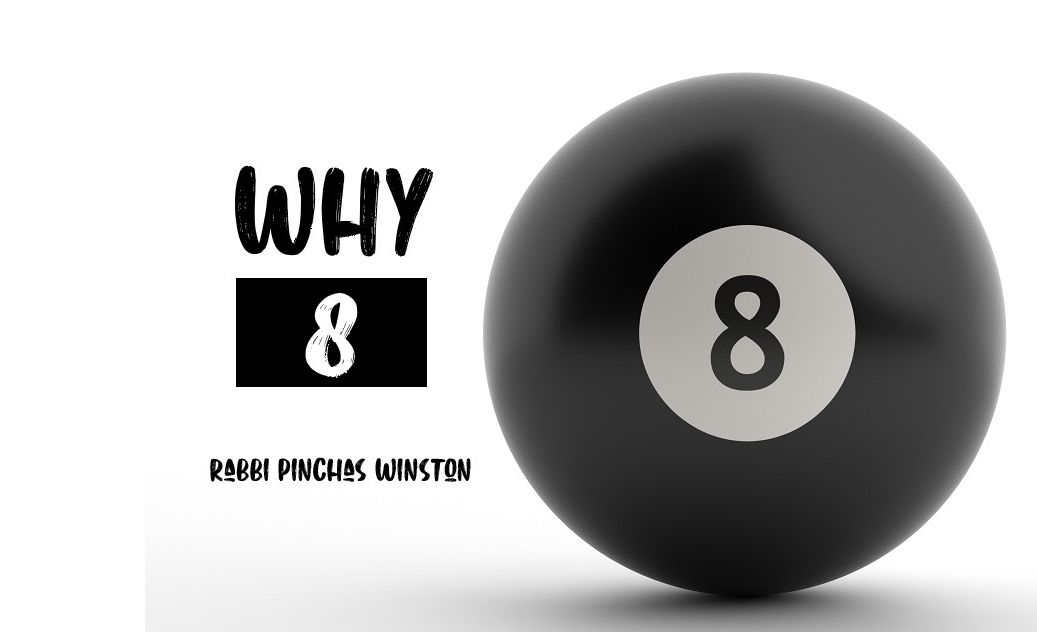


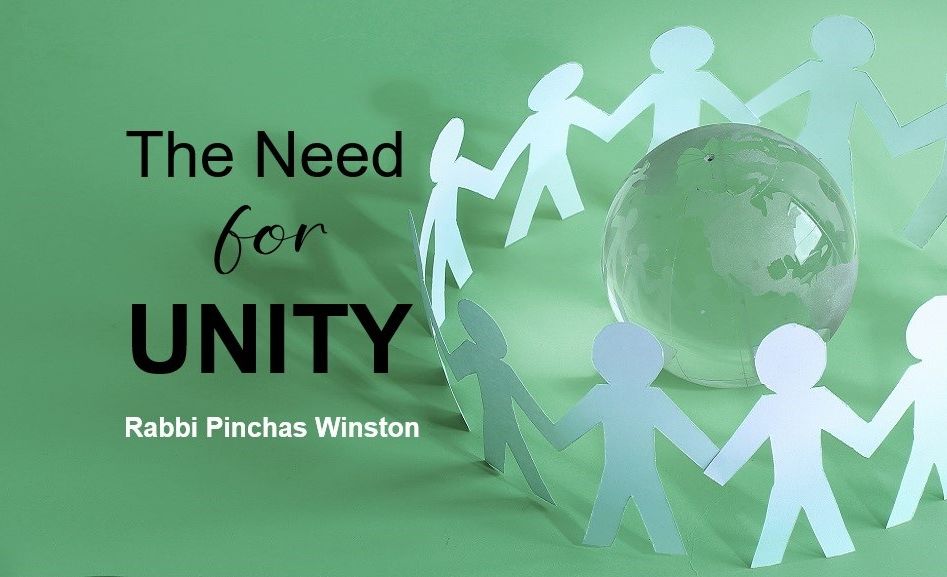
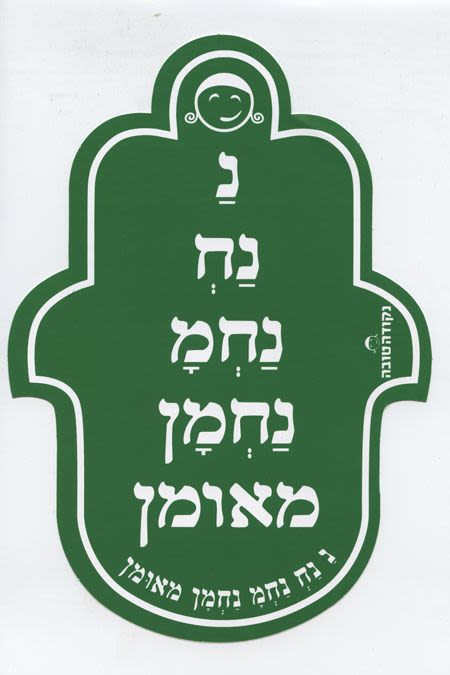
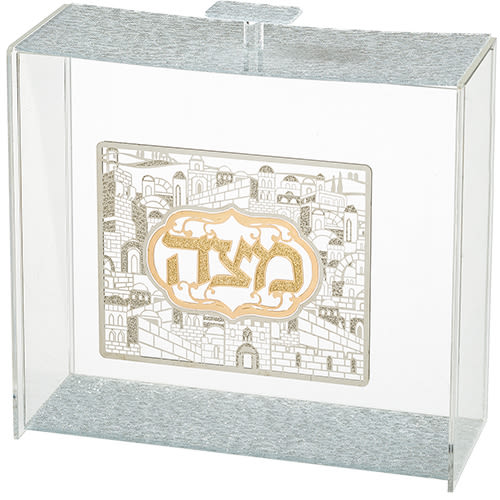
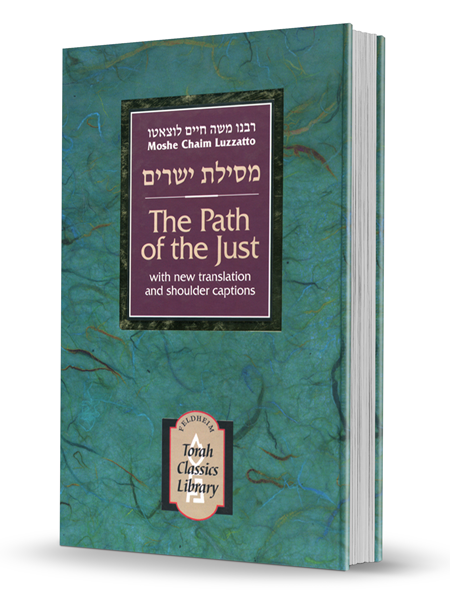


Tell us what you think!
Thank you for your comment!
It will be published after approval by the Editor.